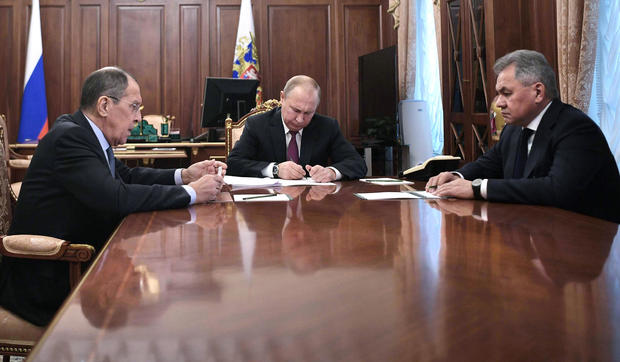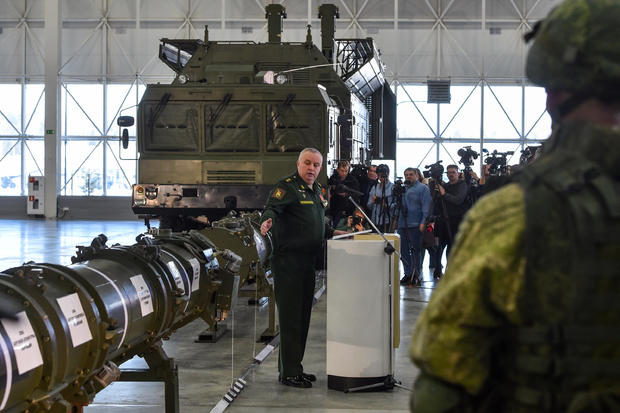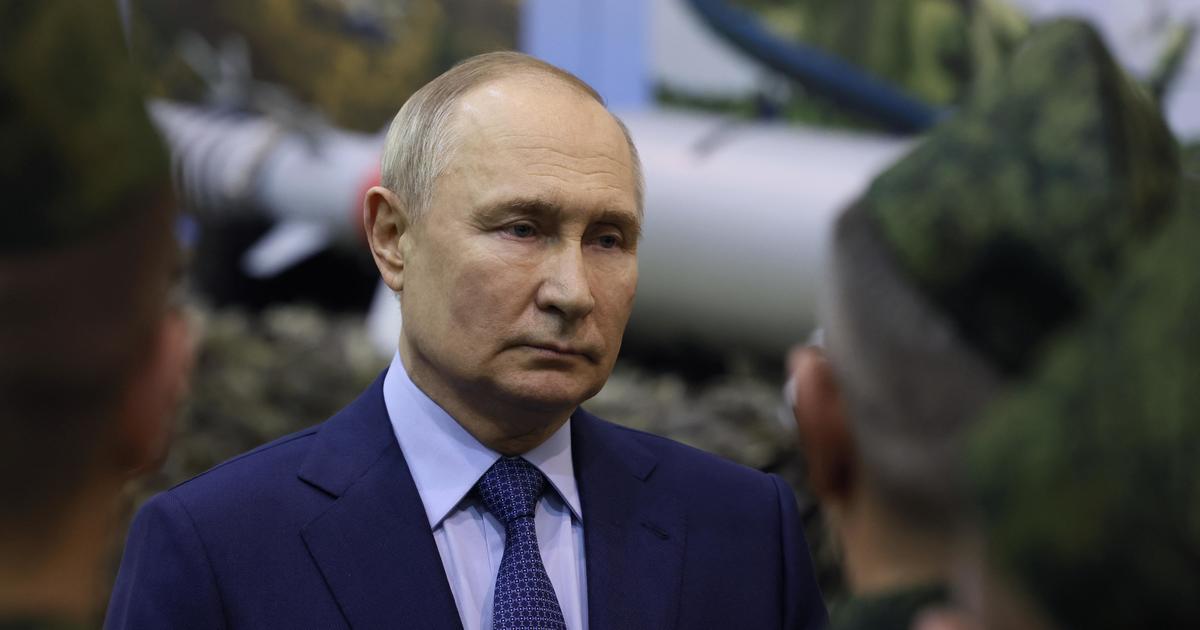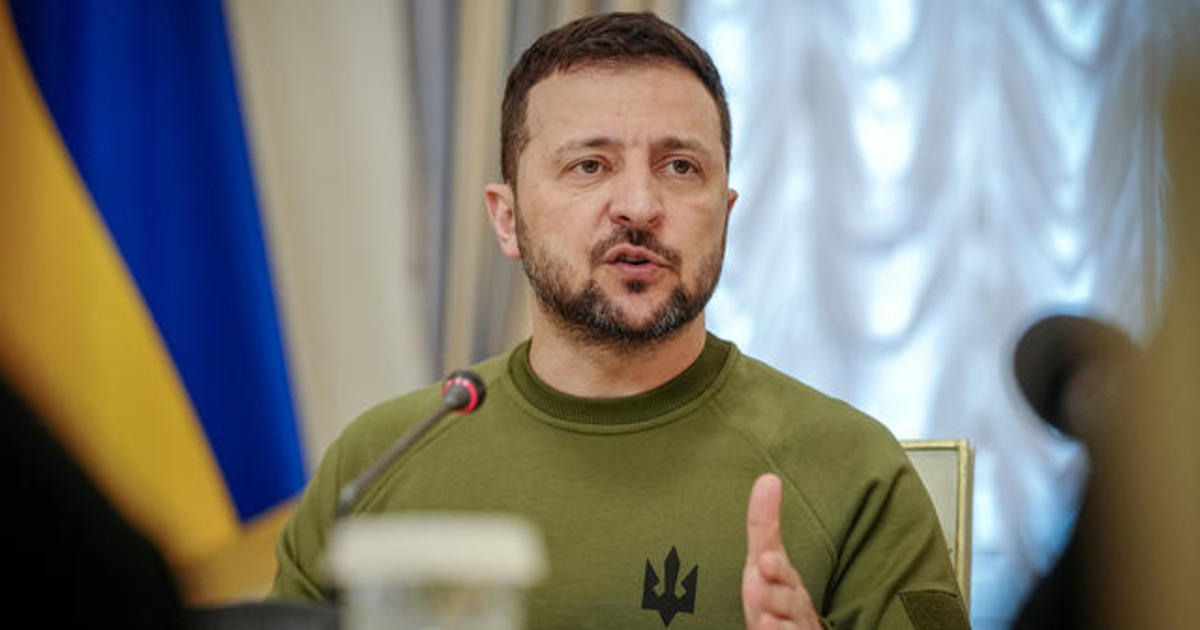Russia says it "has to" develop new land-based cruise missiles as nuclear treaty falls apart
Russia's defense minister Sergei Shoigu on Tuesday said the country must develop new types of missile systems in the next two years after Washington and Moscow ripped up a key arms control treaty. The United States has repeatedly accused Russia of violating the Intermediate-Range Nuclear Forces (INF) agreement and on Friday President Donald Trump said Washington was starting the process of withdrawing from the treaty in six months.
In a tit-for-tat move on Saturday, Russian President Vladimir Putin said Moscow was also leaving the treaty and beginning work on new types of weapons that would breach the crucial Cold War-era agreement.
Many analysts say abandoning the 1987 treaty could effectively signal the start of a new arms race. On Monday, Russian Foreign Minister Sergey Lavrov said his country would no "strive for an arms race, which was characteristic of the era of the Cold War."
Lavrov added, however, that Russia would, "of course… use the military and technical means to react to the threats created by" the U.S. pulling out of the INF.
At a meeting with officials on Tuesday, Shoigu said Russia should develop two new missile systems in the next two years.
"During 2019-2020 we have to develop a land-based version of the seaborne Kalibr system equipped with a long-range cruise missile which showed good results in Syria," Shoigu told defence officials. "Over the same period we will also have to create a land-based missile system with a long-range hypersonic missile."
Putin already touted the development -- and a purported successful first test -- of a hypersonic missile in December. He claimed the new weapon can fly at 20 times the speed of sound and manoeuvre up and down, meaning it could breach most U.S. missile defense systems.
Russia has long denied allegations from the U.S. and its NATO allies that a new missile in the Russian arsenal, the SSC-8, violates the terms of the INF for having a maximum range greater than 310 miles. Russia insists it can only fly 298 miles. It was the development of that missile, which the Russians call the Novator 9M729, that prompted the U.S. decision to abandon the INF treaty.
That same weapons system may be one of the missiles Shoigu alluded to on Tuesday when he ordered defense officials to extend the maximum range of ground-based missiles, "that are being developed today."
Europe, NATO, and why arms treaties matter
The U.S. has shared intelligence with its NATO allies that Washington says proves Russia's SSC-8 missile could give Moscow the ability to launch a nuclear strike in Europe with little or no notice.
In his annual end-of-year news conference, Putin warned of the growing threat of nuclear war, telling journalists in Moscow that, "the danger of the situation (with the U.S. withdrawal from INF) escalating is being downplayed."
"If something like this would happen, it might lead to the collapse of the entire civilization," he said, adding that he believed, "humanity would have the necessary common sense in order to avoid any extremities."
Defense experts say that because ground-based intermediate-range missiles are cheaper than sea and air-launched versions, Russia could theoretically place more of them within range of European targets.
Speaking to Shoigu on Saturday, Putin said Russia would not put any such missile "in Europe or other regions of the world," unless the United States did so first.
Tension between America's long-time European allies and Russia has increased significantly in recent years, driven largely by Putin's decision to unilaterally annex the Crimean Peninsula from Ukraine.
America's role as a co-defender of the peace in Europe is cemented in the tenets of the NATO alliance. Mr. Trump has made European allies nervous since his presidential campaign in 2016 with remarks questioning the relevance and viability of that alliance, but after getting America's partners to agree to increase their funding of NATO, he claimed to have strengthened it.
Since the Cold War, the INF agreement has forbidden Russia or the U.S. from having ground-launched, short- and intermediate-range missiles, but not those launched from the air or sea. Defense experts say converting seaborne and air-launched missile systems for ground use will be advantageous for Russia since producing such missiles will be cheaper and quicker.





